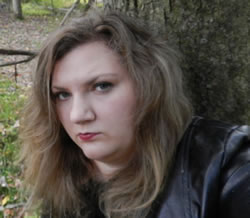|
Write what you know. Most writers have been told this at some point. Craft books say it, instructors instruct it, but what does it mean to truly "write what you know"?
When I was in graduate school, during one of many ill-fated workshops, a classmate said about my story, "Well, they're just a bunch of poor, dumb rednecks, aren't they?" This commenter was known to be harsh and sometimes caustic with his remarks, so I was ready for a sting, but I wasn't quite ready for that. The story was partially based on family stories—my mother, father, aunt, and uncle—when they were young and beginning to navigate adulthood. It hadn't really occurred to me that anyone would see them as anything other than real, charming, slightly messy people. I was writing what I knew.
This is not an essay about how creative-writing workshops might fall short, or an indictment on workshop commentary. Instead, this is about how I learned to be a writer—a real one.
After that workshop, my stories began to change. Without realizing it, I had made myself vulnerable; I had revealed a part of who I was—who my family was (poor, dumb, redneck)—and that critique became not just about my story but about my life. Deciding to not write what I knew wasn't a conscious decision. I became more and more afraid of my own work, and the shell I built up around myself was stories of psychics and rock stars and characters from unidentified regions of the country. I avoided anything that might even be considered a stereotype. My graduate thesis was full of people that I didn't know.
One classmate did not have the power to change my writing. My decision to move away from "what I knew" to safer stories also had to do with the rejections I'd been receiving from literary journals, the models I'd been reading in class (which were nothing like my stories), and, ultimately, the old fear that who I am and where I'm from is seen by the rest of the world as a joke. Oh, did I mention that I'm from West Virginia?
I can't say exactly when I realized how wrong I'd been. I'd been writing mostly unsuccessful stories and teaching composition classes at West Virginia University. My students were from across the country, sometimes from around the world, and from West Virginia. When they wrote personal narratives, I encouraged them to "write what you know," promising them that the product would be better. I don't remember ever wondering why I had moved so far away from that in my own work.
A few years ago, at a writing workshop, a session leader gave us a prompt to write about a true event (an accident where a car had jumped a bridge and overturned in the Green River). I started writing in first-person point of view, the voice of a boy who lived near Green's Run, not a river in Ohio where the actual accident had taken place, but in West Virginia, near my house. I don't know if the change came because I was writing in first person when I almost always wrote in limited third, or from some other more mysterious force, but the voice that came was of Johnny, a rural kid who was struggling with his identity. It was a pure voice, a voice of a boy I would have known, and came to me easier than any ever had.
Because of that story, I was able to meet Appalachian writer Silas House, who chose "Diving" (my story) as the winning entry in a fiction competition. Listening to Silas talk about his craft, his accent, his family stories, and his determination to never give up writing what he knows helped to undo all the bad I'd done to my own writing. There wasn't an epiphany but a gradual understanding that to really be a writer, I had to get beyond my fear and write the truth. I don't know that I've accomplished this yet, but I am trying.
As teachers of writing, when we say to our students, "Write what you know," we should not be referring to occupation, vocation, even location. That limits the scope for fiction and isn't really getting to the core of the matter. When we say, "Write what you know," we should be talking about the interior. The crevices and courages of people. The frailties, weaknesses, heartbreaking beauty. This often will make people uncomfortable. It might also reveal something soft and tender about ourselves that we'd been hoping to protect, but that's the only way to get to the realness, what we truly know. The end result will be something golden, complicated, and lovely.
|


